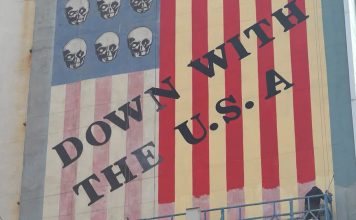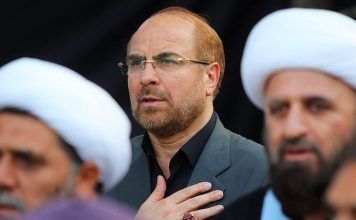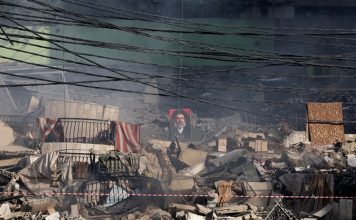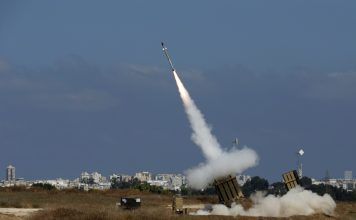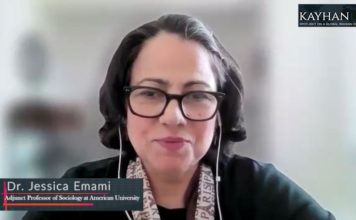By Kayhan Life Staff
Hyperinflation is exacerbating poverty levels in Iran, and leading politicians and the media to intensify their criticism of President Ebrahim Raisi and his government just seven months away from the country’s parliamentary elections.
The Misery Index has shot up above 60 percent in eight Iranian provinces and 55 percent in the remaining 23, according to the June report of the Tehran-based Statistical Center of Iran (SCI).
The Misery Index is an indicator that determines the economic welfare of an average citizen, calculated by adding the seasonally adjusted unemployment rate to the annual inflation rate.
SCI based its findings on the government’s data, showing an average unemployment rate of 9 percent and an inflation rate of 48.5 percent for 2022 and 2023, respectively.
According to the latest data, the Misery Index for the entire country stands at an alarming 57.7 percent.
[aesop_image img=”https://kayhanlife.com/wp-content/uploads/2022/07/faghr.jpg” panorama=”off” credit=”A huge and an increasing number of the Iranian population lives in poverty. FILE PHOTO/KL./” align=”center” lightbox=”on” captionsrc=”custom” captionposition=”left” revealfx=”off” overlay_revealfx=”off”]
Economists regard the Misery Index as a significant indicator of the state of an economy and its social impacts. A rising Misery Index usually signals an increase in the national poverty level, a high divorce rate, suicides, crimes, and low population growth.
Some Parliament (Majlis) representatives who hope to keep their seats in the Parliament have joined the domestic media in blaming the government’s economic policies.
In an article headlined “The Disadvantaged in the Quicksand of Poverty,” the Tehran-based morning newspaper Jahane Sanat warned the government that the public would hold it accountable for the deteriorating state of the economy.
“Government officials must know that the continued fall of the wages and salaries of workers and citizens below the poverty line in the country will cause serious social problems which will ultimately return like a boomerang and hit the management,” Jahane Sanat said.
“Incomes that fall below the poverty threshold threaten people’s physical and mental health,” the paper noted. “It will make the government’s task to tackle economic problems more challenging.”
OPINION: Iran is Rich in Oil and Gas, But Its Citizens Are Impoverished and Severely Repressed
The paper argued that low-income families with limited or no access to leisure, sports, and cultural centers would be socially isolated and suffer physical and mental health issues.
Financial concerns and poverty hamper large swathes of Iranian society, ultimately causing public anger and social harm.
“Poverty leads to inequality in healthcare and medical services,” Jahane Sanat warned. “Low incomes and the prohibitive cost of healthcare pose a serious challenge to [disease] prevention, essential medicines, and [fighting] the spread of illnesses that are vital for a healthy living of the citizens. It will also damage the government.”
“The discrepancy between the incomes and the inflation rate will exacerbate the healthcare inequality, creating serious health issues for the marginalized segment of the society,” the paper added.
Iranian Hospitals Face Shortages of Drugs and Medical Equipment
The conservative Tehran-based Javan online newspaper asked why the prices of food products continued to rise when there was no apparent shortage of goods.
In an article headlined “Suffering Exorbitant Prices amid Abundance,” which appeared in its July 11 issue, Javan said: “When we visit supermarkets and butcher and poultry shops these days, their refrigerators and shelves are stacked with products.”
“While store owners attribute the abundance of goods to a drop in the number of customers and their diminished buying power, data by the Ministry of Agriculture Jihad claims a rise in the production of fruits, fresh chicken, meat, and dairy in the current year,” the paper noted.
“So, why are there such excessive prices if there is abundance?” the paper asked.
“The price of food products, including fruits, dairies, and poultry, remains high even when they are in season,” Javan noted. “For instance, many fruits are not in season anymore these days, so there is no reason to sell expensive fruits, and yet the price of many fruits remains high.”
“Besides local fruit markets, there are many mobile vendors selling fruits at exorbitant prices from the trunk of their Nissans at town squares, alleys, and even on the side of highways,” the paper explained. “Fruits are abundant nationwide but at astronomical prices.”
“While significant measures have been taken regarding the economic, energy, and foreign policy, including ties with our neighbors and even African and Latin American countries, not much has been done to tackle the daily cost of living and the price of essential goods, including fresh chicken, meat, fruits, vegetables, milk, and dairies,” Javan argued.
“Unfortunately, ministries responsible for these sectors, i.e., Ministry of Agriculture Jihad, Ministry of Industry, Mine, and Trade, and the Planning and Budget Organization, have struggled with unstable management and several changes in the past 20 months,” the paper explained. “The absence of management has impacted people’s daily lives.”
“We expect the government to take meaningful steps in solving people’s problems, especially concerning their daily lives, and deal decisively with incompetent managers embroiled in the conflict of interest,” the paper added.
Jalaj Mahmoudzadeh, a Majlis deputy representing Mahabad electoral districts in the northwestern province of Azerbaijan, has been a vocal critic of President Raisi and his cabinet’s handling of the economy.
“Since the unveiling of Mr. Raisi’s 70 promises and 7,000-page program during the election campaign and after the formation of a ‘strong government,’ we have now arrived at long and wide queues for goods, bread, and fresh chicken and facing massive price hikes, 100 percent inflation, the sharpest drop in the value of the national currency, miserable food situation and economic catastrophe,” Mr. Mahmoudzadeh tweeted on July 12.
“People’s dignity can only be violated from within the country and not outside,” Mahmoudzadeh warned.
President Raisi and his cabinet insist that inflation is slowing down, a claim strongly challenged by experts and domestic media.
In its July 8 editorial headlined “Who Should We Believe?”, the Tehran-based conservative Ettelaat newspaper questioned the government’s positive spin on the economy.
“Let us not forget that in each household there is a ‘price meter’ called refrigerator next to the TV, by which people gauge the validity of optimistic claims made by the officials,” the paper said. “Ultimately, people believe what their refrigerator says, not the TV.”
In comments reported by the Tehran-based Khordad news on July 9, Gholamreza Nouri Ghezeljeh, a reformist Majlis deputy representing Bostanabad in the northwestern province of East Azerbaijan, said: “While officials insist that inflation rate is 40 percent, we know it stands at 120 percent. How can they claim it is 40 people, then?”
“Playing with numbers and figures will not hide the truth from the public because they shop and experience this daily,” Mr. Ghezeljeh argued. “It would be better if the decision-makers in charge were more careful when providing figures and numbers, so they do not raise the level of distrust in society.”
In an interview with the Tehran-based Fararu news website, Ali Rezaei, a member of the Majlis’ Economy Commission, said: “People, businesses, and the entire society are experiencing the profound and tangible impacts of the hyperinflation.”
“If the president says that the inflation rate lowered compared to last month or based on the point-to-point inflation rate [the increase in the price of goods and services over a period], the true Judge of that claim would be public,” argued Mr. Rezaei, who represents Kermanshah electoral district, in the western Kermanshah in the Majlis.
“People must experience a real change in the inflation rate at their dinner table,” Rezaei noted. “If the public does not confirm the published inflation rate, then it makes no difference what number they give it, be it 40 percent or 120 percent.”
“Most of the population who struggle to make ends meet are dignified and do not complain by shouting and screaming,” Rezaei explained. “All government officials must do their utmost to address society’s concerns, solve their problems, and ease economic and daily pressures.”
“The government has all the tools,” Rezaei argued. “The country’s economy will improve if the government musters the will to change the conditions.”
Sri Lanka Set to Start Tea-for-Oil Barter With Iran Next Month
“There is also weak oversight in the law, which is our fault as the law-makers, and in Parliament’s failure to put preventive measures in place, which emboldened some people to continue their activities,” Rezaei added. “The government is also at fault for insisting on ‘price control.’ However, nothing is resolved through issuing orders. It is supply and demand that determine prices.”
Some in the religious community have joined politicians and the media in criticizing the government’s failure to bring inflation and the high cost of living under control.
In comments reported by the Tehran-based Etemad newspaper online on July 11, Ayatollah Mohammad Ali Ayazi, a member of the Assembly of Qom Seminary Scholars and Researchers, said: “Using religious slogans as a tool while people are facing misery and poverty will only fuel discontent.”
“The frequent wasteful spending, be it from the government’s budget or by the public, is unacceptable,” Mr. Ayazi added. “Cultural institutions must inform people about the dangers and harms caused by wrongful spending. We are witnessing public discontent resulting from such spending, which they find unacceptable.”


